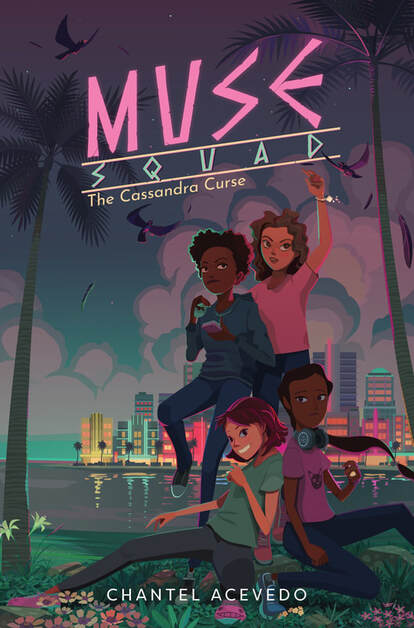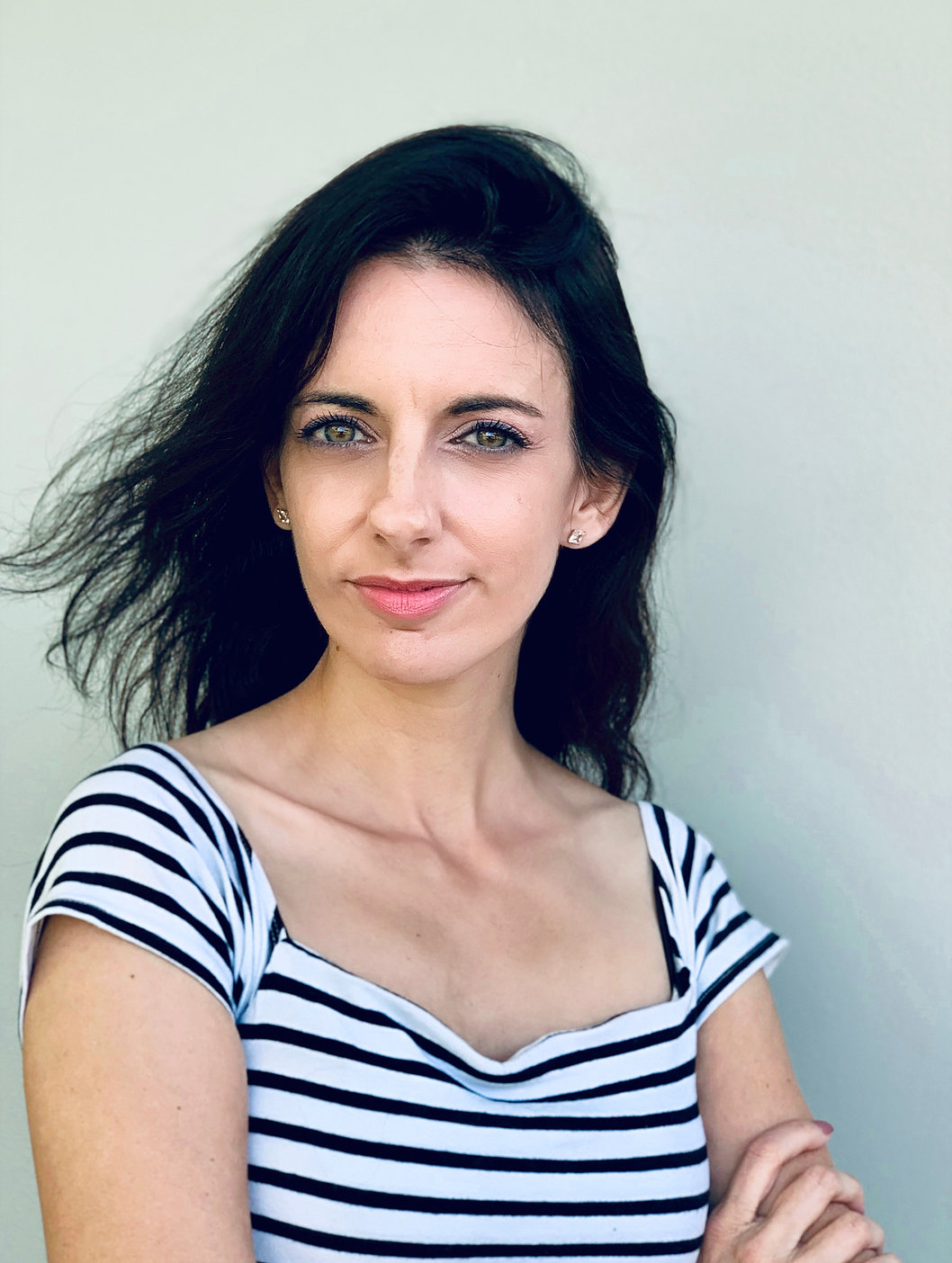|
A wonderful, happy, very inspired book birthday to Muse Squad: The Cassandra Curse by Chantel Acevedo! The first in a middle grade fantasy duology about a Cuban American girl who discovers that she’s one of the nine Muses of Greek mythology.  Callie Martinez-Silva didn’t mean to turn her best friend into a pop star. But when a simple pep talk leads to miraculous results, Callie learns she’s the newest muse of epic poetry, one of the nine Muses of Greek mythology tasked with protecting humanity’s fate in secret. Whisked away to Muse Headquarters, she joins three recruits her age, who call themselves the Muse Squad. Together, the junior muses are tasked with using their magic to inspire and empower—not an easy feat when you’re eleven and still figuring out the goddess within. When their first assignment turns out to be Callie’s exceptionally nerdy classmate, Maya Rivero, the squad comes to Miami to stay with Callie and her Cuban family. There, they discover that Maya doesn’t just need inspiration, she needs saving from vicious Sirens out to unleash a curse that will corrupt her destiny. As chaos erupts, will the Muse Squad be able to master their newfound powers in time to thwart the Cassandra Curse . . . or will it undo them all? Natalia Sylvester chatted with Chantel Acevedo about all things Muse Squad! Don’t miss the chance to hear more from Chantel during her online book launch on July 11! NS: So I can't help asking: what inspired you to write Muse Squad? Actually, scratch that: which muse do you think inspired you to write Muse Squad, and why? CA: I love the way you've asked this question, Natalia! I suppose I would say Callie, aka Calliope, Muse of the Epic Poem, was my muse. Classically, Calliope is the writer's muse, so you and I both owe her a debt. But in MUSE SQUAD, she's also our main character, a Cuban-American girl living in Miami and navigating lots of changes. Callie is an amalgamation of a number of girls in my life, age 8-14. They're all reflected in her, in lots of different ways. More importantly, those kids are the reason I started thinking about MUSE SQUAD in the first place. NS: One of my favorite lines in the book is when Etoro, one of the elder muses, explains to the junior muses "We do not inspire anything in a person that does not have love at the source." When Nia asks, "What about self-defense?" Etoro responds that "loving yourself matters, too." I thought this was so powerful, both in the first thought of love as a core motivator, and then taking that even further to the nuances of protecting oneself and each other. Were there any particular experiences that informed this distinction? I feel it's so rarely made. CA: I think it's an idea I've carried around for a long time. My parents divorced when I was very little, and my dad wasn't in my life. Whenever I felt down about this, I would think about all the people in my family who loved me. I felt that as long as I was loved, I'd be okay, and it was a feeling that carried me through difficult times. It was a protective form of thinking. I didn't know it then, but I was centering myself in the face of neglect. It's a lesson all of the young muses have to learn in one way or another, as does everyone. But I think it's an especially necessary form of love when you're in middle school, which can be so hard on self-esteem. NS: I was fascinated by how—this being an adventure and suspenseful book that has a battle of good vs evil at its center—the act of "fighting" looks so different from what we're used to seeing. Was it hard for you to reimagine what battles could look like, or did you always set out to do that? CA: Thanks for noticing this! The muses don't "fight" with their fists, or with weapons of any sort. Their magic is about inspiration, and so I had to imagine how that might be used in self-defense. On the one hand, it might be seen as a limitation, but I viewed it as opening up all kinds of possibilities of what it means to take action. The action sequences were honestly the most fun to write! NS: During our Las Musas webinar on making the switch from writing adult to kid lit, you talked about the importance of decision-making points in the narrative. Without giving any spoilers, can you tell us about the process of writing one or two of those points, and how they helped tell the story? CA: Sure (and by the way, I had such a great time during our webinar!). The moments when a character makes an important decision might be seen as the hinges in a novel. These are the moments when readers figure out who they are dealing with, or to stick with the hinge analogy, how the story's mechanism is working. For Callie, an important hinge moment is when she decides to use her magic to make her best friend jealous. This particular friendship is challenged by a number of events throughout the book, and while we as readers are rooting for them to make up, their work towards that is fraught. There are potentially life-threatening consequences to this choice Callie makes, and she comes out of the moment a changed person. Those decision points, or hinges, can transform a story and lend it momentum, so I think they are important to identify as a writer. NS: Heroism and the ability for everyone to be inspired (but also find the hero within themselves) is such a beautiful theme in this book. Were there any characters who surprised you in their heroism? CA: We probably don't talk enough about parents in kid lit, but Callie's mom is a hero in my mind. She's a newly divorced mom of three, who is also grieving a beloved sister, and holding it all together for her kids. And to go back to your first question, she's driven by love, of course. I would also say that Maya, who Callie and the rest of the Muse Squad are called upon to help, is a tiny, but mighty hero, too. She's determined to save the world using her brain power, and I just adore her. Thank you so much, Chantel, and congratulations again!
0 Comments
Leave a Reply. |
Las Musas SpeakWelcome to our blog! Archives
July 2024
Categories
All
|


 RSS Feed
RSS Feed